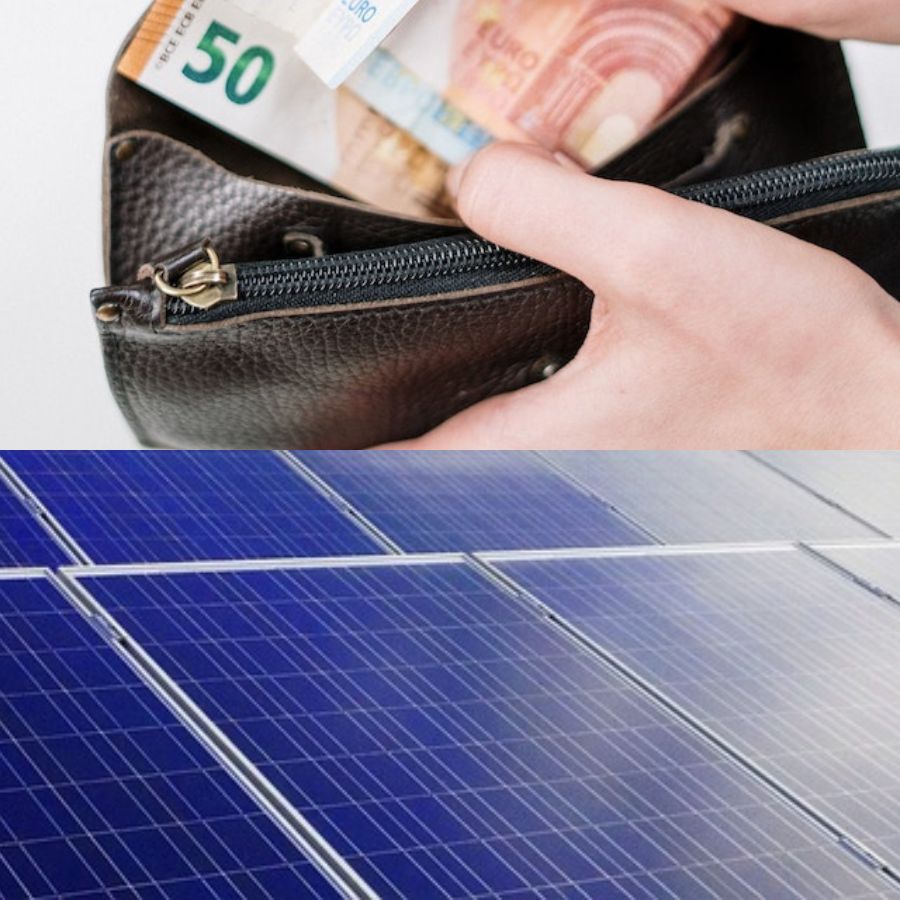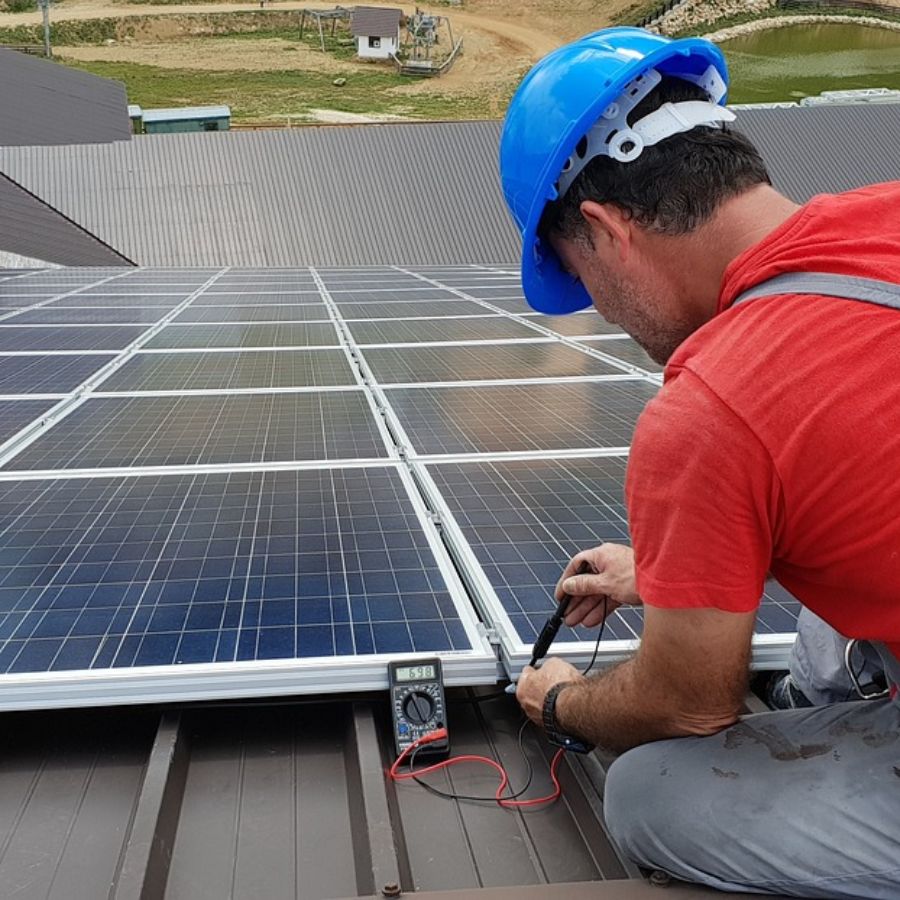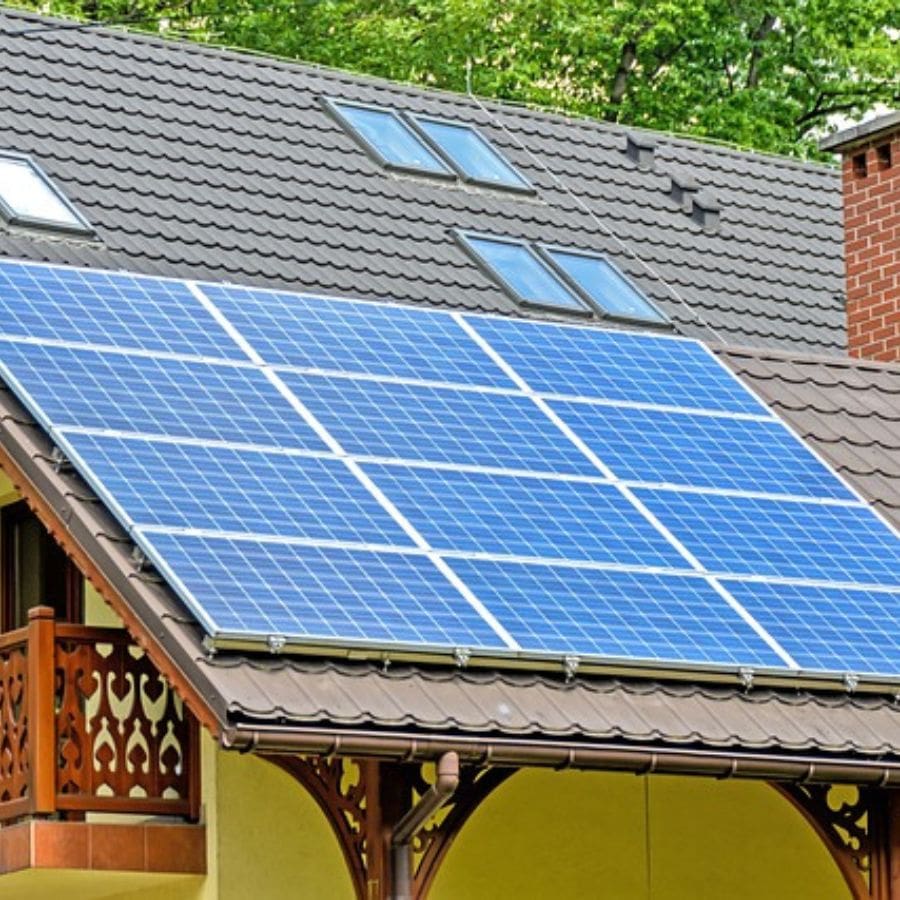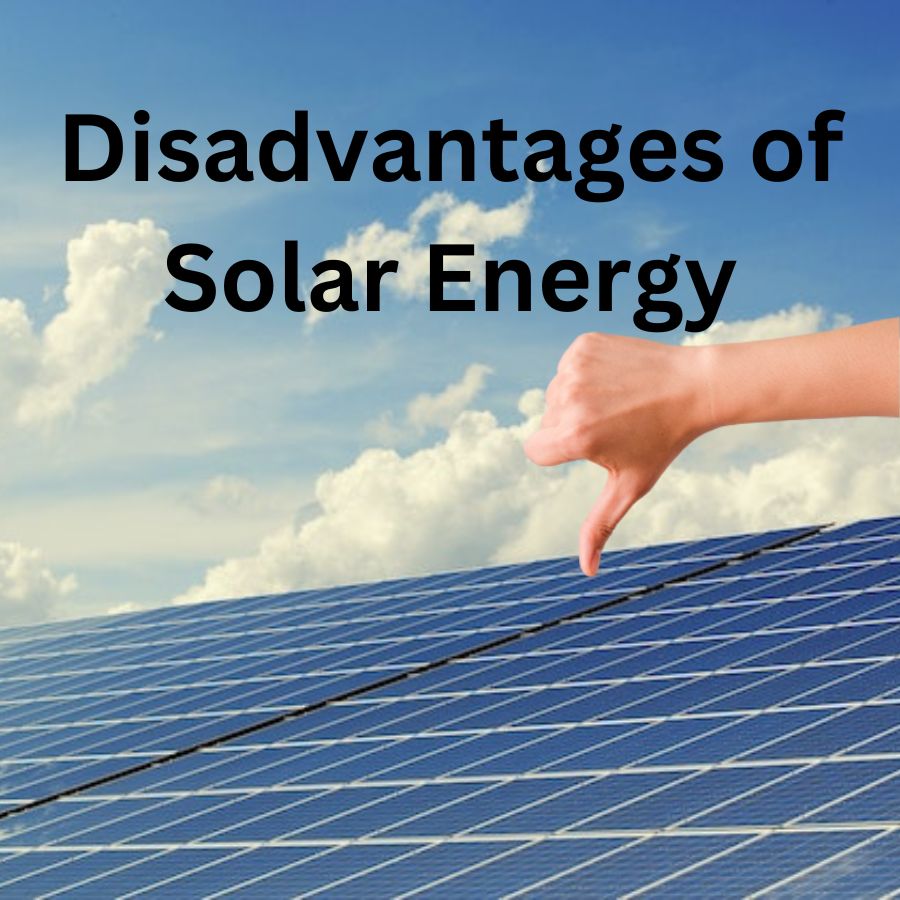In recent years, solar energy has emerged as a prominent renewable energy source, offering an alternative to fossil fuels. While solar energy advantages discussion happens widely, it’s essential to recognize the disadvantages of solar energy.
This article will delve into the critical disadvantages of solar energy that deserve attention. From limitations in energy production to environmental impacts and economic considerations, we will examine the challenges solar power systems face. By shedding light on these disadvantages, we aim to foster a balanced understanding of solar energy’s potential and implications for our energy landscape. Let’s get started.
Initial Costs and Economic Viability

The first aspect that potential users face is the upfront cost of installing a solar system. Further, this includes the cost of the solar panels and the associated equipment, such as inverters, mounting hardware, and wiring.
Additionally, professional installation services contribute a significant portion to the overall expenses. Installing solar panels is labor-intensive and requires skilled technicians, leading to high labor costs.
For an average-sized residential solar system, the upfront costs can range from $15,000 to $25,000 or more. The cost depends on various factors, such as the size of the system and the region in which one resides.
Uncertain Return on Investment
Installing solar panels can reduce electricity bills, but the return on investment (ROI) is only sometimes guaranteed. Fluctuations in energy prices, government incentives, and the performance of your solar panel system can all affect the ROI. Also, as a system of solar cells typically has a lifespan of 25-30 years, the payback period can be long, depending on various factors.
Dependability and Efficiency Issues
Inconsistent Energy Source
Solar energy systems rely on sunlight, making them an unreliable energy source. On cloudy or rainy days, the efficiency of solar panels drops significantly, which means that during specific periods, your solar system may not meet your energy needs.
Geographic Limitations
The effectiveness of a solar system depends on geographic location. Solar power systems are less efficient in areas with limited sunlight or long winters. In addition, it makes solar energy a less viable renewable energy source for specific regions.
Energy Storage Challenges
Solar energy storage ensures a consistent electricity supply, especially during nighttime and cloudy days. It is a severe issue if you want to produce electricity through solar panel systems.
However, current battery technologies are expensive and have limited capacity. It is one of the disadvantages of solar energy that can lead to reliance on traditional sources when solar power is unavailable.
Environmental Concerns
Though solar energy is a renewable energy source and does not contribute to greenhouse gas emissions, producing solar panels involves using hazardous materials like cadmium and silicon tetrachloride. Disposing of solar panels at the end of their lifespan can also pose environmental challenges as they may contribute to electronic waste, an increasingly global issue.
Large-scale solar energy systems often require vast amounts of land, which can disrupt local ecosystems and habitats. Further, this is particularly concerning in regions where land is scarce or solar installations replace agricultural lands or natural ecosystems.
Maintenance and Durability

When considering the adoption of solar energy, it is essential to understand the maintenance requirements and the durability of solar systems. These factors are crucial in your solar energy system’s long-term performance and return on investment.
Maintenance Requirements
Though often advertised as low-maintenance, solar panels require regular care to operate efficiently. Here’s what the maintenance typically involves:
1. Cleaning
Solar panels can accumulate dust, debris, snow, or bird droppings depending on your location and the local environment. Furthermore, this can reduce the panels’ ability to capture sunlight. Regular cleaning is essential, though the frequency will depend on your circumstances.
2. Inspections and Repairs
It is advisable to have a professional inspection of your solar system periodically. These inspections can identify potential issues, such as loose mountings, worn-out wires, or malfunctioning inverters. Prompt repairs will ensure that your system continues to operate efficiently.
3. Monitoring System Performance
Many modern solar systems have performance monitoring software. Regular monitoring can help identify any drops in power output that might signal an issue needing maintenance.
4. Inverter Replacement
The inverter, which converts the direct current from the solar panels to alternating current for home use, typically has a shorter lifespan than the panels. You may need to replace it at least once during the lifetime of your solar system.
Durability Concerns
Understanding the durability of solar panels and associated components is essential for anticipating your system’s lifespan and potential maintenance needs.
1. Weather Resistance
Solar panels are durable and weather-resistant. However, there is a risk of damage in areas with extreme weather conditions such as hail, heavy snow, or high winds. It’s vital to ensure the rating of your solar panels for the weather conditions in your area.
2. Lifespan of Panels
The average lifespan of solar panels is around 25-30 years. However, the output of the panels decreases gradually over time. By the end of their lifespan, solar panels typically operate at a reduced efficiency, which could be around 80% of their original capacity.
Technological Limitations and Integration Challenges
The technology for solar energy systems is continually evolving. It means a system installed today may become outdated in a few years.
Rapid technological advancements can affect the resale value of properties with older solar energy systems.
Integration Challenges
Integrating solar power systems into existing power grids can be complex and costly.
Many power grids cannot accommodate the variable nature of solar energy, and upgrading them to work efficiently with renewable power sources can be expensive.
Aesthetics and Space Requirements

For some, the aesthetic aspect of installing solar panels on rooftops or in yards is a concern. Large panels can change the appearance of a house or landscape, which might not be appealing to everyone.
This particular issue, though seemingly trivial compared to other disadvantages of solar energy, can be a deciding factor for some homeowners.
Solar panels require significant space to generate enough power to sustain a household or business. It can be a constraint, especially in urban settings with premium space.
For those with limited space, installing a solar power system that meets all their energy needs may be challenging.
Social and Political Aspects
Although solar energy can lower utility bills, the initial cost of installing PV panels is prohibitive for many.
Moreover, this can create a disparity in access to solar energy systems, where only those with the financial means can benefit from this green energy source.
Governments and stakeholders must address this social issue to ensure that the benefits of solar energy are accessible to all.
The economic viability of installing solar panels can also be highly dependent on government policies. In many cases, tax incentives and rebates significantly offset the initial costs of a solar energy system.
However, political changes can lead to the withdrawal or reduction of these incentives, affecting the overall affordability of solar energy.
Comparisons with Other Renewable Energy Sources
Solar power is one of many options as the renewable energy sector evolves. Technologies such as wind, hydro, and geothermal energy are also advancing.
In some cases, these alternatives offer better suitability or efficiency based on geographic and climatic conditions.
It’s crucial to weigh the pros and cons of different green energy sources before deciding on a solar power system.
Summing Up – A Balanced Perspective
Solar energy is undoubtedly critical in transitioning towards more sustainable energy solutions. However, it is crucial to recognize the disadvantages of solar energy when considering a switch to this green energy source. Before investing in a solar energy system, it is essential to evaluate factors such as initial costs, geographic location, availability of space, and personal preferences regarding aesthetics.
Additionally, staying informed about the latest advancements in solar technology and monitoring the political landscape for potential policy changes can be beneficial. It’s also vital to consider the environmental implications of solar panels regarding production and disposal. We must recognize that while solar energy is a cleaner alternative to fossil fuels, it is not entirely devoid of environmental impact.
In conclusion, while solar energy advantages are driving a global shift towards this green energy source, understanding and carefully weighing the disadvantages of solar energy are essential for making informed, sustainable choices.
Frequently Asked Questions
What Is the Major Disadvantage of Solar Energy?
The major disadvantage of solar energy is its dependence on sunlight, which makes it an unreliable energy source. Solar panels, an integral part of any solar system, require direct sunlight to generate electricity effectively.
However, sunlight is only sometimes available – during nights, cloudy days, or certain seasons, the solar panels’ efficiency significantly drops. This inconsistency means that solar systems often cannot be relied upon as the sole source of electricity, and alternative sources or energy storage solutions are needed.
Also, storing solar energy for later use involves additional costs and technical challenges, which can be prohibitive for some.
Why Are People Against Solar Power?
People are sometimes against solar power primarily due to aesthetic concerns, high initial costs, and environmental considerations associated with producing solar panels. Additionally, some individuals worry about the substantial land required for large-scale solar systems and question the efficiency of solar technology. Solar panels installed on rooftops or open areas may also be viewed as visually unappealing or disruptive to the natural landscape, making specific individuals reluctant to support solar power initiatives.


Leave a Reply